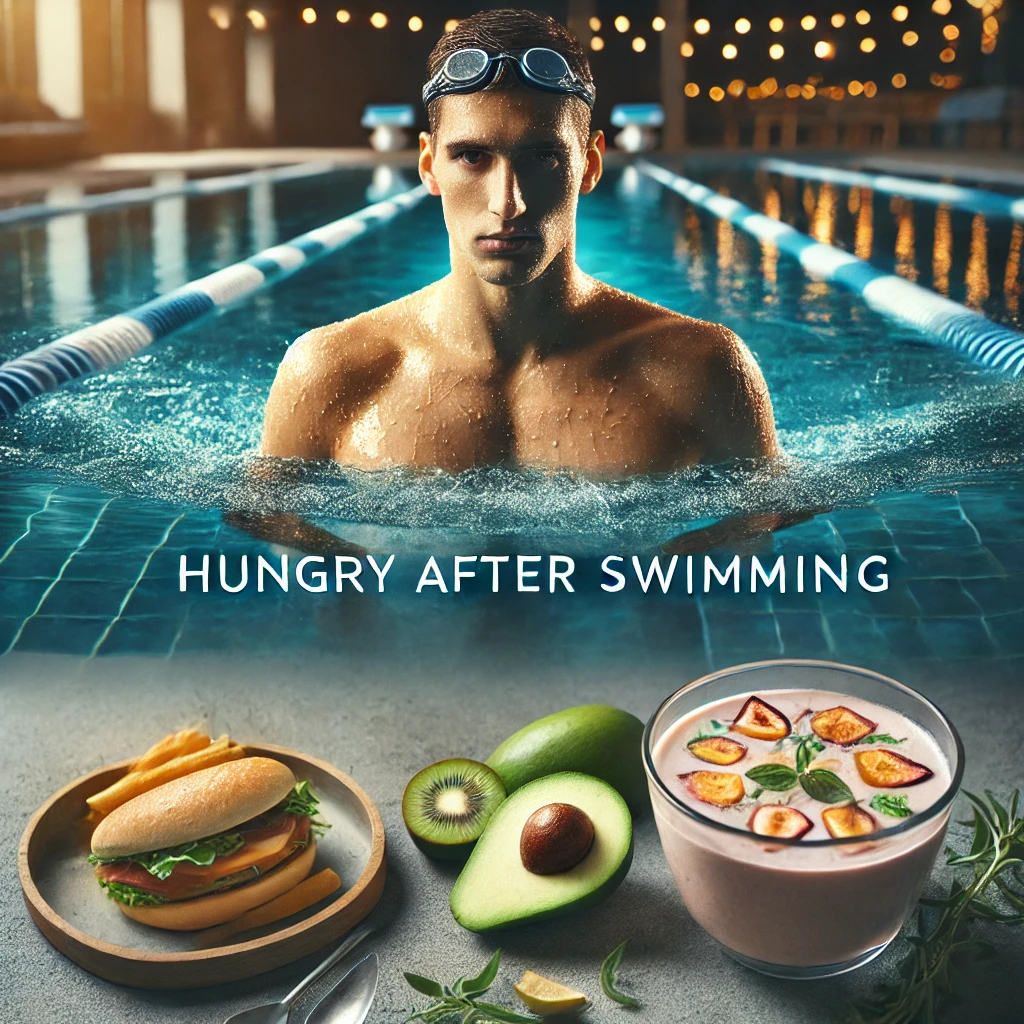Last Modified:
Why Do I Get Hungry After Swimming?

If you've ever finished a swimming session feeling ravenous, you're not alone. Many swimmers notice a strong surge of hunger after their workout. But why does swimming, compared to other forms of exercise, make you feel so hungry? To answer this question, we need to examine the combination of physiological, environmental, and metabolic factors that contribute to this post-swimming hunger.
The Caloric Demands of Swimming
Swimming is a full-body workout that involves continuous muscle engagement, resulting in significant calorie expenditure. The amount of energy burned during swimming can be substantial, often more than other common sports. For example, a person weighing 71 kg (157 lbs) expends approximately 546 kcal per hour while swimming at a moderate pace. Since swimming recruits multiple muscle groups, it accelerates calorie burning, and the body's immediate response is to replenish the energy that’s been lost. Hence, post-swim hunger is often driven by the body’s need to refuel after burning a large number of calories.
Swimming and Body Temperature Regulation
Unlike most land-based activities, swimming occurs in water, an environment that influences body temperature regulation. When submerged, the body is in constant contact with a medium cooler than itself, which forces it to work harder to maintain its internal temperature. Even though swimming may not feel as exhausting as running, the water’s cooling effect can mask the energy the body is expending.
This thermal dynamic plays a significant role in hunger. The cold environment of the pool or ocean triggers a modest increase in core temperature and stimulates metabolic processes. After swimming, the body's physiological response to the cold can lead to increased energy demands, making you feel hungry in order to maintain homeostasis. This is especially true for swimmers who train in cold water, where their bodies work even harder to stabilize temperature. Swimming-induced hunger, therefore, is not just about the calories burned but also the energy needed to combat the cold.
Water Immersion and Hormonal Responses
Swimming also influences the body’s hormonal responses, contributing to post-exercise hunger. Immersion in water can alter blood flow and affect hormones that regulate appetite. Specifically, cold water can increase levels of ghrelin, a hormone known to stimulate appetite. This could explain why swimmers often experience stronger hunger pangs compared to athletes in other sports like running or cycling.
Moreover, immersion in water can lead to dehydration, even if you don’t notice excessive sweating. This dehydration may also trick the body into craving food when it actually needs water. Thus, the sensation of hunger after swimming may sometimes be a misinterpretation of dehydration.
The Effect of Cold Water on Metabolism
The impact of water temperature on hunger extends to metabolic rates. Studies have shown that cold exposure, such as immersion in water, significantly increases metabolic activity, which in turn can lead to a quicker depletion of energy stores. This increased metabolic activity can explain why swimmers often feel more hungry after exercising in water compared to land-based workouts. In fact, elite athletes who train in cooler environments, like swimmers, may experience higher daily energy expenditures, sometimes leading to negative energy balances if they do not consume enough calories.
Post-Swimming Energy Imbalance
It is also important to note that many athletes, especially female swimmers, often do not consume enough calories to meet the energy demands of high-intensity swimming. This creates a negative energy balance that increases feelings of hunger after exercise. During a typical training session, swimmers can burn up to 5593 kcal daily during peak training, and if not properly replenished, this deficit drives the body to signal hunger more intensely.
Psychological and Behavioral Factors
Beyond the physical factors, psychological and behavioral factors can also influence hunger after swimming. The calming nature of being in water and the mental relaxation it provides can create a subtle shift in how the body experiences hunger. When the body returns to its normal state post-swim, these signals may become more noticeable, leading to a feeling of intense hunger. Additionally, if swimmers associate swimming with large post-exercise meals, habitual eating patterns may also trigger hunger.
Conclusion: Understanding and Managing Post-Swim Hunger
To manage the hunger that follows a swim session, it’s crucial to understand that your body is responding to multiple stimuli: calorie expenditure, cold exposure, dehydration, and hormonal changes. Here are a few tips to help manage hunger after swimming:
-
Hydration: Ensure you are well-hydrated before, during, and after your swim to avoid mistaking thirst for hunger.
-
Post-Swim Snack: Have a balanced snack ready for post-swimming recovery. Foods rich in both carbohydrates and proteins help replenish energy stores and repair muscles.
-
Monitor Temperature: If swimming in cold water, be mindful of the increased metabolic demand, and adjust your food intake accordingly.
-
Listen to Your Body: Trust your hunger cues, but also be aware of how much energy your body truly needs.
Ultimately, feeling hungry after swimming is a natural response. By understanding the mechanisms behind it, you can fuel your body appropriately without overeating. So, the next time you step out of the pool and feel the urge to snack, remember that your body is simply asking for the energy it worked so hard to burn.